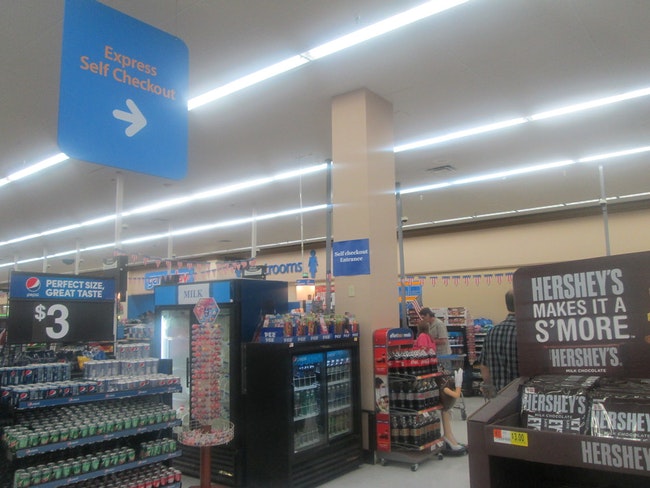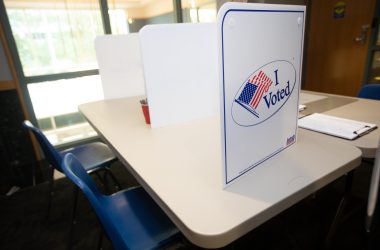 (Courtesy/Creative Commons)
(Courtesy/Creative Commons)
SALEM — Are they an annoyance? A convenience? Do they destroy jobs?
A federation of Oregon workers wants voters to issue a verdict on the self-checkout kiosks becoming more prevalent at grocery stores.
A petition to limit each grocery store to two of the checkout kiosks can soon move forward to signature gathering. On Friday, the Oregon Supreme Court certified the attorney general’s description of the proposed measure.
Sandra McDonough, president and CEO of lobby group Oregon Business & Industry, challenged Attorney General Ellen Rosenblum’s description of the proposed measure, asking the Supreme Court to review it.
Backers need 112,020 signatures to get to voters’ ballots in November.
Filed in July, Initiative Petition 41 is backed by the Oregon AFL-CIO, a coalition of labor groups representing about 300,000 Oregon workers.
“We have been consistently concerned about the impacts of technology and automation on the livelihoods of working people, especially when they have no voice in how technology is used in their workplaces,” said Graham Trainor, president of the Oregon AFL-CIO, in a statement. “You can see expansion of self-checkout machines in stores across the country and in Oregon.”
He said jobs are lost as a result.
The AFL-CIO contends self-checkout kiosks make customers feel socially isolated, particularly elderly people, and that the kiosks let stores rely more on part-time workers and leaves workers “feeling devalued.” They also claim self-checkout stands make it easier for minors to buy alcohol and for people to steal from stores.
Joe Gilliam, president of the Northwest Grocery Association, an industry group, scoffed at the labor group’s claims, calling the proposed measure “a bit perplexing and very misguided.”
“Today’s customer wants convenience and less hassle when shopping,” Gilliam wrote in an email to The Oregon Capital Bureau. “This is evident in the growth of online shopping for local pick-up and home delivery. This measure is tone deaf to what the public is demanding in the marketplace.”
He said that self-checkout lets customers check out more quickly and privately. He said presuming that self-checkout machines would replace workers is “simply untrue.”
“Employees are our lifeblood and provide key services that no machine can duplicate,” Gilliam said.
The measure would give the state Bureau of Labor and Industries enforcement power and let it issue penalties for stores that provide too many self-service stations.
In court documents, McDonough argued the proposed restriction would have a “substantial impact” on retailers and shoppers.
She argued that the ballot title wasn’t clear that “virtually all Oregonians” could sue grocery stores that have more than two self-checkout kiosks.
“The ballot title process, which we were just in, is about making sure, if the measure actually gets on the ballot, that the words that describe it accurately reflect what the measure’s going to do,” said McDonough in an interview Wednesday. “…And we’re going to wait to see if it makes it on ballot. And if it does, then we’ll assess what we’re going to do about it. But from our perspective, this is really about what consumers want.”
Evan Christopher, a lawyer for Gilliam, echoed similar concerns about potential lawsuits in a letter to the Secretary of State Elections Division last fall.
“Voters must be informed that (the initiative petition) permits every employee who complains about a self-checkout and is later terminated or demoted or given a different work schedule to call his or her employer into court on a claim of retaliation,” Christopher wrote. “Every customer who files a complaint about a self-checkout machine and is later asked to leave the same store — for whatever reason — would have the same claim.”
Reporter Claire Withycombe: [email protected] or 971-304-4148.









